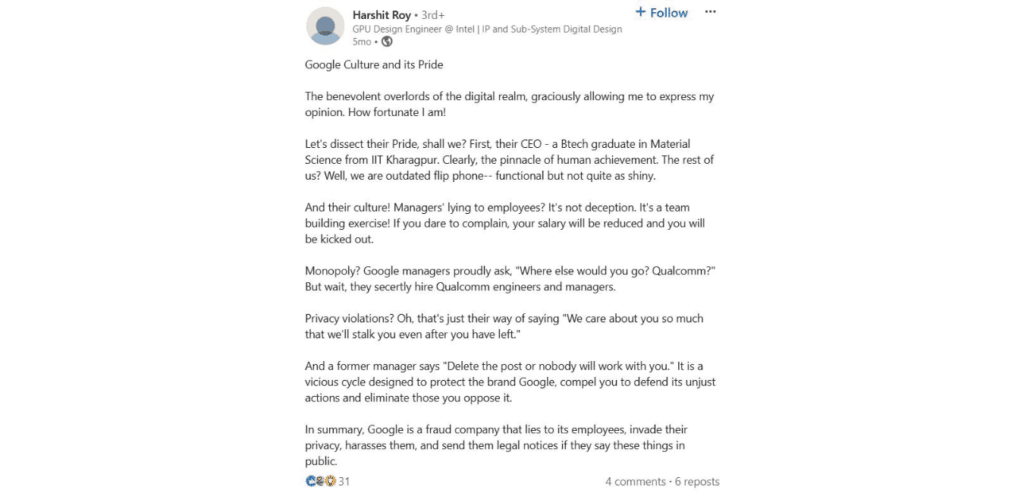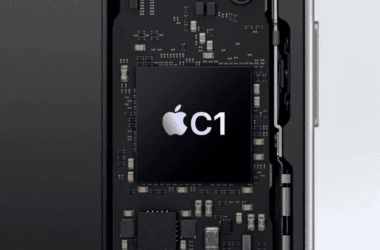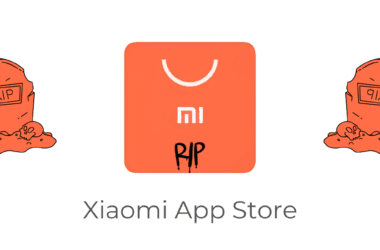Google has recently filed a lawsuit against its ex-engineer, Harshit Roy, in Texas, accusing him of leaking confidential information regarding the company’s Pixel chip designs. The lawsuit has sent ripples across the tech industry, raising questions about corporate loyalty, intellectual property protection, and ethical boundaries.

The Allegations: A Breach of Trust
Harshit Roy, who resigned from Google in February 2024, allegedly posted internal documents on platforms like X (formerly Twitter) and LinkedIn. These documents reportedly contained sensitive details about Google’s Pixel chip designs, potentially jeopardizing the company’s competitive edge.
Opinion: A Troubling Precedent for Corporate Trust
The act of publicly sharing proprietary information is a direct breach of trust and confidentiality. Such actions could discourage companies from fostering open, innovative environments, fearing that their intellectual property could be exposed.

The Platforms: Social Media as a Battleground
Roy’s posts on X and LinkedIn included images of the internal documents, with some posts tagging competitors like Apple and Qualcomm. Despite takedown requests, Roy persisted, continuing to share confidential details.
Social platforms have become a powerful tool for whistleblowers and disgruntled employees, but they also amplify the risks of intellectual property theft. Companies must evolve their security measures to account for these risks.
The Accusations: Beyond the Leaks
In addition to sharing confidential details, Roy labeled Google as a “fraud company” in a LinkedIn post, escalating tensions further. Google claims these accusations are unfounded and that Roy’s actions were intended to harm the company’s reputation deliberately.

Opinion: The Fine Line Between Criticism and Defamation
While employees have the right to voice concerns about workplace practices, airing grievances through inflammatory statements risks crossing into defamation territory, particularly when paired with the sharing of sensitive information.
Google’s Legal Response: Protecting Its Intellectual Property
Google has demanded unspecified monetary damages and court orders to prevent Roy from sharing any more confidential information. The company’s swift legal action underscores the seriousness with which tech giants view intellectual property breaches.
Opinion: A Necessary Move to Safeguard Innovation
For a company like Google, whose competitive advantage relies heavily on proprietary technology, such legal measures are not just reactive but necessary to deter similar actions in the future.
Industry Implications: A Wake-Up Call for Tech Firms
This incident serves as a reminder of the vulnerabilities that even the most secure companies face. It also highlights the need for stricter onboarding and offboarding processes to prevent sensitive information leaks.
Opinion: Time for Proactive Policies
Companies must adopt more proactive strategies, such as enhanced employee training, legal agreements, and cybersecurity measures, to mitigate risks associated with insider threats.
Conclusion: Striking a Balance Between Transparency and Protection
The Harshit Roy case exemplifies the delicate balance companies must maintain between fostering a culture of innovation and safeguarding their intellectual assets. As this lawsuit unfolds, it will undoubtedly set a precedent for how similar cases are handled in the tech industry.
Final Thoughts: Lessons for Both Sides
While companies must tighten their safeguards, employees must also recognize their ethical responsibilities. The mutual trust between employers and employees is the cornerstone of innovation—once breached, it can have far-reaching consequences for both parties.








